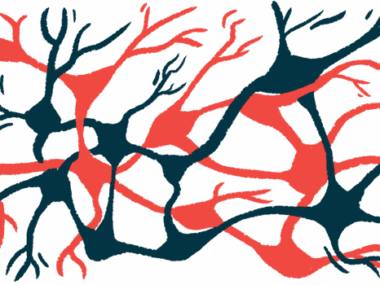Pison’s AI-powered technology may help identify early ALS
The company aims to incorporate its biosensor into fitness trackers, smartwatches
Written by |

A new technology powered by artificial intelligence (AI) may one day help doctors diagnose people in the early stages of amyotrophic lateral sclerosis (ALS), according to data from a clinical trial.
Developed by Pison, the technology was able to detect involuntary muscle twitches, or fasciculations, and changes in muscles’ electrical activity that helps distinguish healthy people from people with ALS.
This means it could serve as a digital disease biomarker of ALS, helping patients start treatment earlier when it’s more effective at slowing disease progression. It could also let doctors monitor patients and see how well they’re responding to treatment.
“If these results are validated, then this will enable clinicians to detect motor neuron involvement noninvasively and track it over the course of disease and with treatment interventions,” Terry Heiman-Patterson, a professor of neurology and study lead investigator, said in a Pison press release.
Muscle movement occurs when the brain sends electrical signals through specialized nerve cells called motor neurons. These signals can be measured via a technique known as electroneurography, which uses a biosensor, or a set of electrodes, in contact with the skin.
Pison developed a neural biosensor for the wrist that contains electrodes similar to those used in electroneurography, but allows for round-the-clock recording of electrical signals. Machine learning, a type of AI, then helps turn the recordings into information a computer can understand.
Because ALS damages motor neurons, electrical signals from the brain are weaker, which can help the algorithms distinguish ALS patients from healthy people, perhaps even before symptoms of ALS manifest.
“This technique may enable earlier diagnosis of motor neuron damage in presymptomatic gene carriers, help to detect motor neuron involvement in other disorders and provide a system that can remotely monitor progression in ALS and help in patient-centric clinical trial design,” said Heiman-Patterson, also the director of the MDA/ALS Center of Hope at Temple University.
The company is working to incorporate the technology into wearable devices, such as fitness trackers and smartwatches, which could help doctors collect information about motor neuron health and monitor their patients remotely. Having this technology in wearable devices also could help monitor the general population and potentially diagnose motor neuron-related conditions well before symptoms are evident.
“We have begun licensing our neural biosensor for incorporation into popular wearables such as smartwatches and fitness trackers for passive health monitoring, which will ultimately have the ability to track ALS and other neurological disorders in the form of neural health apps and telehealth services,” said John Croteau, CEO of Pison.
“New and better ways to diagnose and monitor people with ALS are urgently needed,” said Kuldip Dave, senior vice president of research at the ALS Association, which funded the study, along with the National Science Foundation. “We are proud to have supported the initial testing of this promising new technology. We look forward to seeing the results of future studies to confirm and validate these findings with larger groups of participants.”
The company has announced plans to conduct larger and longer studies to better understand how well the technology can diagnose and and monitor the progression of ALS and other neurodegenerative diseases, such as multiple sclerosis and Parkinson’s disease.






